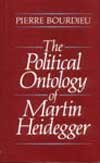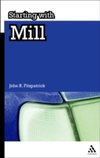
-
 Anglický jazyk
Anglický jazyk
Hierarchy and Freedom
Autor: Hasan Spiker
The repudiation of the existence of intrinsic hierarchies is one of the defining insistences of contemporary Western liberal society, along with the dominant strands of philosophical and socio-political thought that underlie it. This short work, by philosopher... Viac o knihe
Na objednávku, dodanie 2-4 týždne
29.61 €
bežná cena: 32.90 €
O knihe
The repudiation of the existence of intrinsic hierarchies is one of the defining insistences of contemporary Western liberal society, along with the dominant strands of philosophical and socio-political thought that underlie it. This short work, by philosopher Hasan Spiker, is about the relationship between a decisive feature of Enlightenment thought, individual self-determination or 'autonomy', and one of the most far-reaching and widely held principles of the prior 'premodern' philosophical orthodoxy, namely that reality possesses an intrinsically hierarchical structure. This broad doctrine, which traces its philosophical roots at least to Plato himself, won near-unanimous acceptance during the Middle Ages. However, with the advent of the Age of Enlightenment beginning in the 17th century in Europe, this near unanimity shifted to the unanimity of rejection. The thinkers of that age, from John Locke to the Enlightenment philosophes, many of whom contributed to the Encyclopédie, are credited with having provided the decisive theoretical impetus for the principles of individual self-determination and autonomy that lie at the self-definitional foundation of modern societies. It was only in the absence of such false strictures upon human freedom as notions of 'intrinsic hierarchy', that true individual autonomy could be realised. Yet despite such fine-sounding rhetoric about freedom, rationality, and equality, definitive of modern self-perception and appearing in the ubiquitous propaganda that is everywhere and indelibly embedded into the very fabric of modern life, the flagship, twin modern claims of having discovered individual freedom, and of being uniquely capable of protecting it, both suffer from a fundamental, underlying intellectual bankruptcy which it is becoming ever more difficult to conceal. The main objective of this short study, then, is to increase the difficulty of this concealment yet further, in the establishment of a philosophical conclusion, namely that the ontology of 'Platonic' hierarchy provides a demonstrably more successful philosophical grounding for theories of individual human autonomy as rational self-determination (as exemplified by Plotinus' Enneads VI.8) than do empiricist, broadly materialist 'Enlightenment' ontologies (as epitomised by that of Locke in his Essay), which nonetheless also attempt to identify freedom with rational self-determination. In fact, the claim is stronger than this; of their very nature, such empiricist theories formally fail to ground the theories they purport to support. Such immanentist accounts are incapable of justifying rational self-determination over and against an ultimately arbitrary voluntarism. This theoretical aim achieved, another objective of this work is to argue against a pervasive polemical image of the idea of intrinsic hierarchy, that has consistently portrayed it as an imposition motivated purely by power interests, a depiction that has ignored the logical and metaphysical principles upon which it is based, principles that in fact root a powerful theory of the possibility of human self-determination capable of counteracting the barbarous and life-denying arbitrarism of our time.
- Vydavateľstvo: New Andalus Press
- Rok vydania: 2023
- Formát: Hardback
- Rozmer: 209 x 132 mm
- Jazyk: Anglický jazyk
- ISBN: 9798218147471









 Ruský jazyk
Ruský jazyk 


